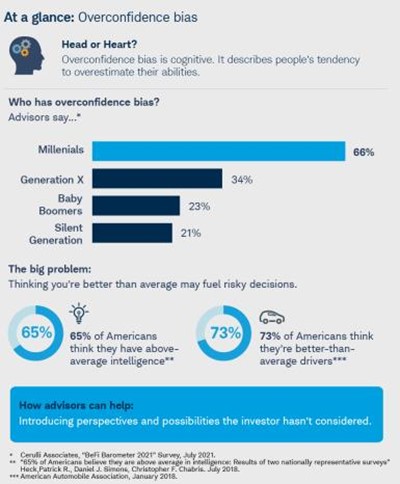Behavioral Finance: The mystakes Mistakes We Make
Those of us that studied finance in a classroom setting were taught that the stock market is “efficient”. Efficient in this context means that the market is always fairly priced and that all relevant information is built into the pricing. There are no “wrong” prices—the market takes care of that with it’s liquidity (ease of buying and selling). Every profit opportunity that comes along will be recognized by the market and quickly taken advantage of—which in turn resets prices quickly to take away the profit opportunity.
Bullshit.
It took me a while to be convinced this viewpoint is just plain wrong. The market isn’t efficient. It’s efficient-ish. Yes the market’s liquidity does keep most prices roughly in the range of “fairly priced”….but there are many, many exceptions. Traditional finance academia allowed for no exceptions, and that’s where it goes wrong. Academia is catching up to explain these exceptions and the area that does it best is the relatively new area of behavioral finance. “Behavioral finance” does the job of explaining the mistakes people make (the “market” is just people) and why they make them. We could change the name to “Psychology of Investing” and maybe have the concept better understood.
And the Most Common Mistake is…
And now we come to it—the #1 mistake we humans make when investing is overconfidence. (But you knew that from the title of this piece) In order to feel better about our decisions, we often come to believe it’s the best decision and we need to stick to it. Maybe we should be thinking something like, “…this is the best decision for NOW, given the information I have…” This way of thinking would open the door to reconsider. But… that way of thinking leaves open the scary trapdoor of uncertainty. We like to feel certain. Some people are better than others at living day to day with uncertainty. My experience suggests it’s worth learning to live with the uncertainty of investing because it leads to better decision making.
Our friends at Schwab have done some independent research on this topic. The better we understand this topic, the better we can help our clients invest successfully. It’s that simple.
We Can Reduce the Bias & Invest Better
Overconfidence is merely a trick of the mind. All we really need is another mind trick to counter it, if we can find one. The father of Behavioral Economics, Daniel Kahneman, came up with a good idea. Imagine that you make investment decisions today and you’re instantly transported 10 years in the future and your portfolio has done well. Without knowing what happened, take some guesses as to why you made good gains. How much was in your control, and how much was out of your control. Now imagine your 10-year portfolio flopped. Why? And try not to stop at “…the market must’ve had a really bad 10 years..”. What in your decision-making might have been mistaken?
And here’s my favorite addition: imagine it’s not your portfolio, but your spouse/partner’s. For many of us, the explanations will be different!
Caught ya in overconfidence bias.
